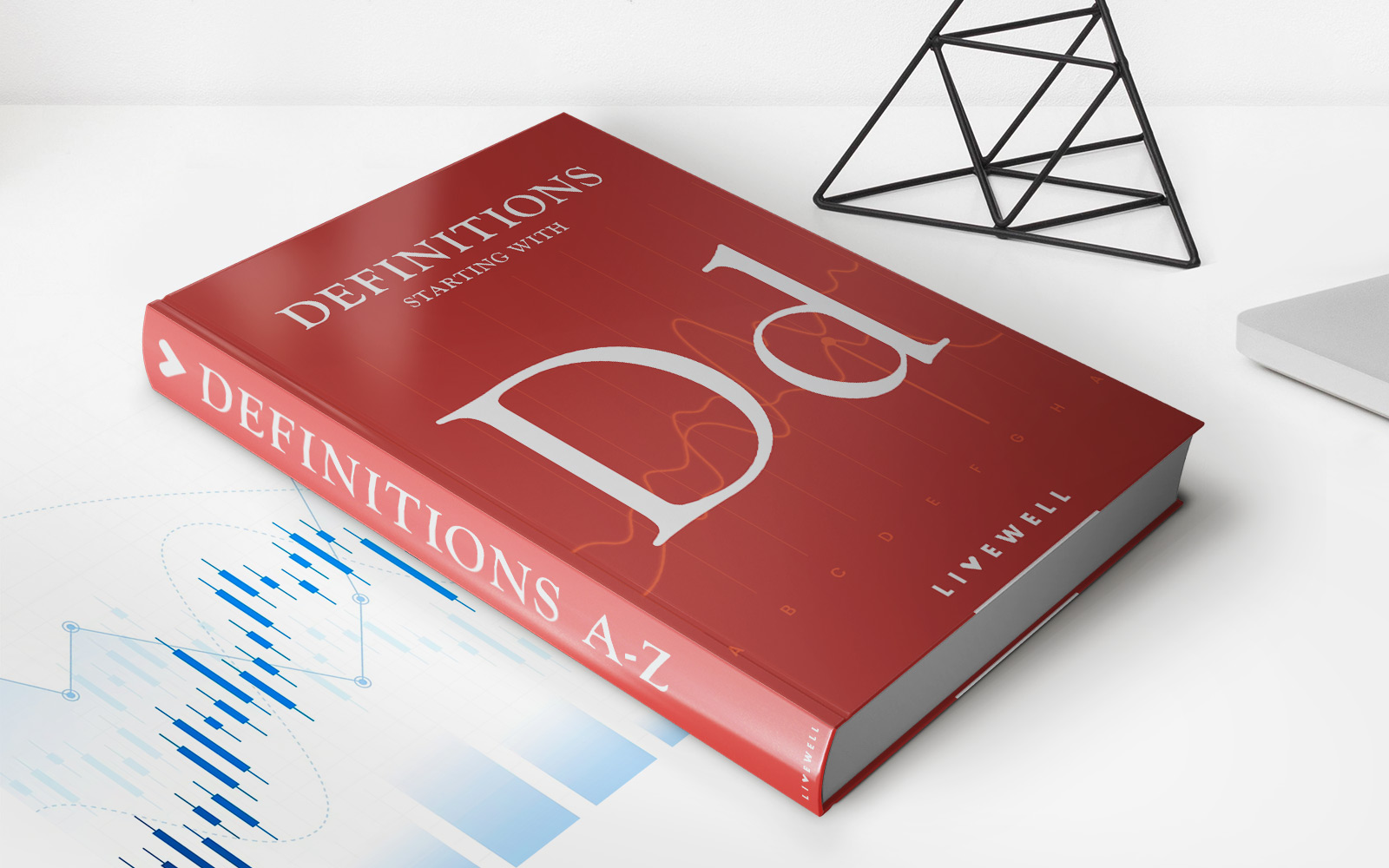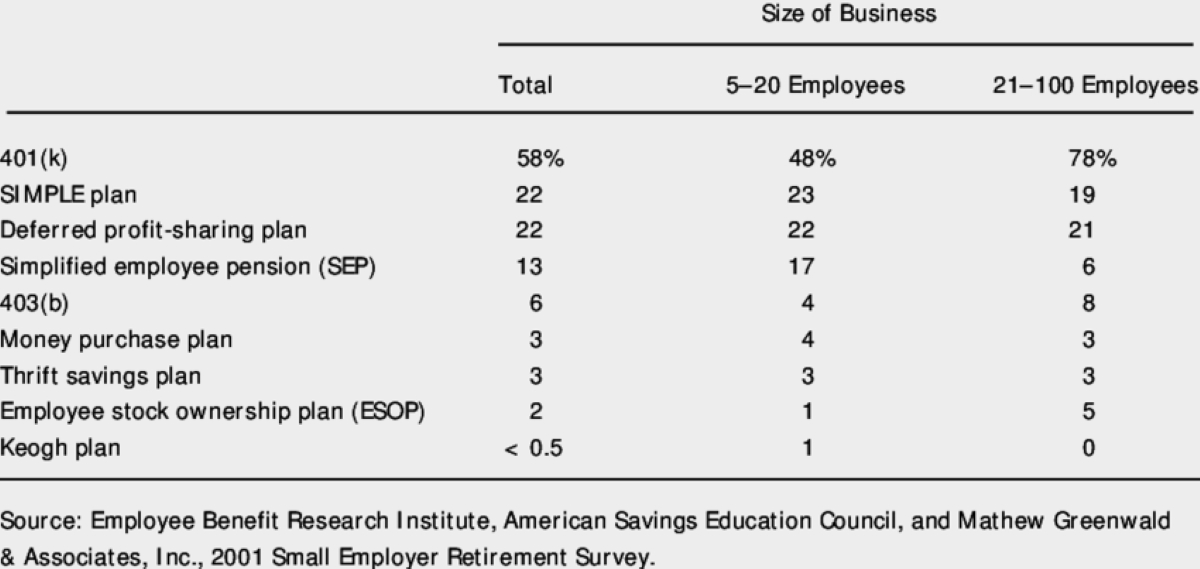

Finance
Why Do Unions Utilize Pension Funds?
Published: January 23, 2024
Discover the role of pension funds in union finance strategies. Explore the reasons why unions leverage pension funds for long-term financial stability.
(Many of the links in this article redirect to a specific reviewed product. Your purchase of these products through affiliate links helps to generate commission for LiveWell, at no extra cost. Learn more)
Table of Contents
Introduction
Pension funds play a pivotal role in the financial landscape, serving as a cornerstone for retirement security for millions of workers. These funds are instrumental in providing a steady income stream for retirees, ensuring financial stability during their post-employment years. However, the significance of pension funds extends beyond individual retirement planning, as they also hold substantial influence in the realms of corporate governance, investment strategies, and labor negotiations.
Understanding the intricate interplay between pension funds and various stakeholders is crucial in comprehending the broader economic and social implications of these financial entities. In this article, we will delve into the multifaceted dynamics of pension funds, particularly focusing on their relationship with labor unions. By exploring the historical evolution, investment strategies, and impact on corporate governance, we can gain valuable insights into the rationale behind unions' utilization of pension funds and the implications thereof.
Pension funds have undergone a remarkable evolution since their inception, mirroring the shifting paradigms of retirement planning and investment management. The historical trajectory of these funds is intertwined with the labor movement, reflecting the concerted efforts to secure financial well-being for workers beyond their active employment years. As such, comprehending the historical backdrop of pension funds is instrumental in contextualizing their contemporary significance, especially within the framework of labor unions and collective bargaining.
Moreover, the investment strategies employed by pension funds wield substantial influence not only on the financial markets but also on the broader socio-economic landscape. The prudent allocation of pension assets, encompassing a diverse portfolio of stocks, bonds, and alternative investments, has far-reaching implications for capital markets, corporate governance, and the overall economy. This intricate web of financial interdependencies underscores the pivotal role of pension funds in shaping the financial ecosystem, thereby warranting a comprehensive examination of their investment practices.
Furthermore, the utilization of pension funds as a bargaining tool by labor unions underscores the intricate nexus between retirement security and collective bargaining. The strategic leverage afforded by pension funds in labor negotiations holds profound implications for workers' rights, corporate decision-making, and the broader socio-economic fabric. By delving into the mechanisms through which pension funds influence union negotiations, we can unravel the underlying motivations and implications of this strategic maneuvering.
In the subsequent sections, we will embark on a comprehensive exploration of the historical background of pension funds, their role in union negotiations, investment strategies, influence on corporate governance, as well as the challenges and controversies surrounding these financial entities. Through this multifaceted analysis, we aim to elucidate the complex interplay between pension funds and labor unions, shedding light on their symbiotic relationship and the broader ramifications for the financial and labor sectors.
Historical Background of Pension Funds
The genesis of pension funds can be traced back to the late 19th century, a period marked by profound socio-economic transformations and the burgeoning labor movement. As industrialization gained momentum, the labor force underwent significant changes, with a burgeoning emphasis on wage labor and the rise of industrial capitalism. This transformative era engendered a pressing need for mechanisms to provide financial security for workers during their retirement years, thereby laying the groundwork for the emergence of pension funds.
One of the earliest iterations of pension funds can be attributed to the initiatives undertaken by employers and labor unions to establish retirement schemes for workers. These early pension arrangements, while rudimentary compared to contemporary standards, signified a pivotal shift in labor relations, as they sought to address the long-term financial well-being of employees. Over time, the concept of pension funds evolved in tandem with legislative reforms and the expansion of the welfare state, culminating in the widespread adoption of employer-sponsored pension plans.
The landmark enactment of the Social Security Act in the United States in 1935 epitomized a watershed moment in the evolution of pension funds, laying the groundwork for a comprehensive social insurance system. This pivotal legislation not only established the framework for government-administered retirement benefits but also catalyzed the proliferation of private pension funds. Subsequently, the post-World War II era witnessed a surge in the prevalence of employer-sponsored pension plans, bolstered by favorable tax treatment and regulatory incentives.
Moreover, the labor movement played a pivotal role in advocating for robust pension provisions, leveraging collective bargaining as a mechanism to secure retirement benefits for workers. The inclusion of pension provisions in labor contracts underscored the growing recognition of retirement security as a fundamental component of labor rights, thereby cementing the integration of pension funds within the fabric of labor relations.
As pension funds gained prominence, their investment strategies and governance mechanisms underwent significant transformations, reflecting the evolving paradigms of investment management and fiduciary responsibilities. The proliferation of defined benefit and defined contribution plans, coupled with the diversification of investment portfolios, underscored the dynamic nature of pension fund management, thereby shaping the contours of modern retirement planning.
In essence, the historical trajectory of pension funds embodies a convergence of socio-economic imperatives, legislative reforms, and labor advocacy, underscoring their pivotal role in safeguarding retirement security and reshaping the dynamics of labor relations.
Role of Pension Funds in Union Negotiations
The utilization of pension funds as a strategic lever in union negotiations epitomizes the intricate nexus between retirement security and collective bargaining. Labor unions often leverage pension funds as a potent bargaining tool to secure favorable terms in collective bargaining agreements, thereby wielding substantial influence in shaping the contours of labor relations and corporate governance.
By incorporating pension provisions into labor contracts, unions endeavor to fortify retirement security for their members, thereby aligning with their overarching mandate to safeguard the welfare of workers. The inclusion of robust pension benefits not only augments the overall compensation package for employees but also underscores the pivotal role of retirement security as a cornerstone of labor rights. This strategic maneuvering underscores the pivotal role of pension funds in fortifying the bargaining power of unions, thereby shaping the dynamics of labor negotiations.
Furthermore, the substantial financial resources held within pension funds endow unions with considerable leverage in negotiations, enabling them to advocate for a diverse array of economic and social objectives. The ability to influence corporate decision-making, governance structures, and long-term strategic initiatives through pension-related negotiations underscores the far-reaching implications of pension funds in shaping the broader socio-economic landscape.
Moreover, pension funds serve as a mechanism for intergenerational wealth transfer, ensuring that the contributions made by current workers pave the way for the retirement security of future generations. This long-term outlook inherent in pension fund management aligns with the core ethos of labor unions, which espouse principles of intergenerational equity and sustainable welfare for workers across successive generations.
Additionally, the integration of environmental, social, and governance (ESG) considerations within pension fund investment strategies has emerged as a focal point in union negotiations, reflecting the growing emphasis on sustainable and ethical investment practices. Unions often advocate for the incorporation of ESG criteria in pension fund management, thereby leveraging their influence to promote responsible investment practices and ethical corporate conduct. This strategic alignment underscores the pivotal role of pension funds in advancing socio-environmental objectives through labor negotiations, thereby transcending their financial dimensions.
In essence, the utilization of pension funds in union negotiations embodies a convergence of economic, social, and ethical imperatives, underscoring their profound influence in shaping labor relations, corporate governance, and sustainable investment practices.
Investment Strategies of Pension Funds
The investment strategies employed by pension funds play a pivotal role in shaping the financial landscape, exerting substantial influence on capital markets, corporate governance, and the broader economy. These strategies encompass a diverse array of asset allocation, risk management, and long-term wealth accumulation mechanisms, reflecting the fiduciary responsibilities and retirement security imperatives inherent in pension fund management.
One of the cornerstone principles underpinning pension fund investment strategies is the pursuit of long-term value creation, underpinned by prudent risk management and portfolio diversification. Pension funds adopt a strategic asset allocation approach, encompassing a mix of equities, fixed income securities, real estate, and alternative investments, with the overarching goal of optimizing risk-adjusted returns while safeguarding the long-term sustainability of retirement benefits.
Furthermore, the integration of environmental, social, and governance (ESG) considerations has emerged as a focal point in pension fund investment strategies, reflecting the growing emphasis on sustainable and responsible investment practices. By incorporating ESG criteria into their investment decisions, pension funds seek to align their portfolios with ethical, environmental, and social objectives, thereby fostering sustainable wealth creation and ethical corporate conduct.
Moreover, pension funds often engage in active ownership and shareholder activism, leveraging their substantial equity holdings to influence corporate governance, strategic decision-making, and the adoption of sustainable business practices. This proactive engagement underscores the pivotal role of pension funds in shaping corporate governance dynamics, thereby fostering transparency, accountability, and long-term value creation within the companies in which they invest.
Additionally, the adoption of liability-driven investment (LDI) strategies has gained prominence in pension fund management, aiming to align asset allocation with the fund’s long-term liabilities and funding requirements. By adopting a liability-driven approach, pension funds seek to mitigate the impact of market volatility and interest rate fluctuations on their funding status, thereby enhancing the stability and predictability of retirement benefits for plan participants.
Furthermore, the proliferation of defined contribution plans has spurred the evolution of pension fund investment strategies, with an increasing emphasis on participant-directed investment options and retirement planning tools. This paradigm shift underscores the growing importance of financial literacy, retirement planning education, and personalized investment solutions within the purview of pension fund management, thereby empowering plan participants to make informed decisions regarding their retirement savings.
In essence, the investment strategies of pension funds embody a convergence of fiduciary responsibilities, sustainable wealth creation imperatives, and the broader socio-economic impact of their investment decisions, underscoring their pivotal role in shaping the financial ecosystem and fostering long-term retirement security.
Influence of Pension Funds on Corporate Governance
Pension funds wield substantial influence on corporate governance dynamics, leveraging their substantial equity holdings and active ownership strategies to shape the governance structures, strategic decisions, and sustainability practices of the companies in which they invest. This proactive engagement underscores the pivotal role of pension funds in fostering transparency, accountability, and long-term value creation within the corporate landscape.
One of the primary mechanisms through which pension funds influence corporate governance is through active ownership and shareholder activism. By leveraging their significant equity stakes, pension funds actively participate in shareholder voting, corporate resolutions, and engagement with company management, thereby advocating for governance reforms, executive compensation alignment, and the adoption of sustainable business practices. This proactive stance underscores the pivotal role of pension funds in advocating for governance structures that prioritize the long-term interests of shareholders and stakeholders.
Furthermore, the integration of environmental, social, and governance (ESG) considerations within pension fund investment strategies has emerged as a focal point in shaping corporate governance dynamics. Pension funds often advocate for the adoption of ESG criteria in corporate decision-making, reflecting the growing emphasis on sustainable and ethical business practices. By leveraging their influence, pension funds seek to align corporate governance structures with principles of sustainability, ethical conduct, and long-term value creation, thereby fostering a more holistic approach to corporate stewardship.
Moreover, pension funds play a pivotal role in fostering boardroom diversity, independence, and expertise, thereby enhancing the governance efficacy of the companies in which they invest. By advocating for the appointment of independent directors, diverse board compositions, and governance expertise, pension funds contribute to the enhancement of governance structures that prioritize accountability, strategic oversight, and the mitigation of conflicts of interest.
Additionally, pension funds often collaborate with other institutional investors and governance organizations to advocate for governance reforms, best practices, and transparency standards within the companies comprising their investment portfolios. This collective engagement underscores the collaborative nature of pension fund activism, reflecting a concerted effort to foster governance structures that prioritize the long-term interests of shareholders, stakeholders, and the broader socio-economic landscape.
In essence, the influence of pension funds on corporate governance embodies a convergence of shareholder activism, sustainable investment imperatives, and the advocacy for governance structures that prioritize transparency, accountability, and long-term value creation. By leveraging their substantial influence, pension funds play a pivotal role in shaping the governance dynamics of the companies in which they invest, thereby fostering a more robust and sustainable corporate landscape.
Challenges and Controversies Surrounding Pension Funds
Despite their pivotal role in retirement security and investment management, pension funds are beset by a myriad of challenges and controversies that underscore the complexities inherent in their operations. These issues encompass regulatory constraints, funding shortfalls, governance concerns, and socio-economic implications, reflecting the multifaceted nature of pension fund management.
One of the foremost challenges confronting pension funds pertains to funding adequacy and solvency, particularly in the context of defined benefit plans. The persistent low-interest-rate environment, coupled with demographic shifts and increasing longevity, has exacerbated funding shortfalls for many pension funds, necessitating robust risk management mechanisms and funding reforms to ensure the long-term sustainability of retirement benefits.
Moreover, pension funds grapple with governance challenges, including conflicts of interest, board effectiveness, and transparency standards, which underscore the imperative for robust governance frameworks that prioritize accountability, strategic oversight, and stakeholder engagement. The need to foster governance structures that align with the long-term interests of plan participants and the broader socio-economic landscape remains a pivotal concern within the realm of pension fund management.
Furthermore, the regulatory landscape governing pension funds is marked by a complex web of compliance requirements, fiduciary responsibilities, and investment constraints, underscoring the need for regulatory reforms that strike a balance between prudential oversight and investment flexibility. The evolving regulatory environment poses challenges for pension funds in navigating compliance obligations while optimizing investment strategies to meet long-term retirement security imperatives.
Additionally, the integration of environmental, social, and governance (ESG) considerations within pension fund investment strategies has sparked debates and controversies concerning the fiduciary duties of pension fund trustees, the trade-off between financial returns and ESG objectives, and the impact of ESG integration on investment performance. Striking a balance between sustainable investment practices and fiduciary responsibilities remains a contentious issue within the realm of pension fund management.
Moreover, the broader socio-economic implications of pension funds, including their influence on corporate governance, investment allocation, and intergenerational wealth transfer, have sparked debates concerning their societal impact, wealth inequality implications, and the alignment of pension fund practices with socio-environmental objectives. These controversies underscore the need for a nuanced understanding of the broader implications of pension fund management within the fabric of the economy and society.
In essence, the challenges and controversies surrounding pension funds underscore the imperative for robust risk management, governance reforms, regulatory alignment, and societal engagement to ensure the long-term sustainability and socio-economic efficacy of these pivotal financial entities.
Conclusion
The intricate interplay between pension funds and labor unions underscores the multifaceted dynamics of retirement security, investment management, and corporate governance. Throughout history, pension funds have evolved as a cornerstone of retirement planning, reflecting the concerted efforts to secure financial well-being for workers beyond their active employment years. The symbiotic relationship between pension funds and labor unions has engendered a strategic alliance, shaping the contours of labor negotiations, investment strategies, and corporate governance.
By delving into the historical evolution of pension funds, it becomes evident that their inception was intertwined with the burgeoning labor movement, reflecting the imperative to safeguard retirement security for workers. The utilization of pension funds as a bargaining tool by labor unions underscores the pivotal role of retirement benefits in collective bargaining, thereby fortifying the financial well-being of workers and shaping the dynamics of labor relations.
Moreover, the investment strategies employed by pension funds wield substantial influence on capital markets, corporate governance, and the broader economy, reflecting the fiduciary responsibilities and retirement security imperatives inherent in pension fund management. The integration of environmental, social, and governance (ESG) considerations within pension fund investment strategies underscores the growing emphasis on sustainable and ethical investment practices, thereby fostering long-term value creation and socio-environmental objectives.
Furthermore, the influence of pension funds on corporate governance dynamics underscores their pivotal role in shaping governance structures, strategic decisions, and sustainability practices within the companies in which they invest. Through active ownership, shareholder activism, and advocacy for governance reforms, pension funds contribute to the enhancement of governance efficacy, accountability, and long-term value creation, thereby fostering a more robust and sustainable corporate landscape.
However, pension funds are not without challenges and controversies, encompassing funding adequacy, governance concerns, regulatory constraints, and socio-economic implications. The imperative for robust risk management mechanisms, governance reforms, and regulatory alignment remains pivotal in addressing these challenges and ensuring the long-term sustainability and socio-economic efficacy of pension funds.
In conclusion, the symbiotic relationship between pension funds and labor unions embodies a convergence of retirement security imperatives, investment stewardship, and corporate governance dynamics, underscoring the pivotal role of these financial entities in shaping the socio-economic fabric. By navigating the complexities and harnessing the opportunities inherent in this relationship, pension funds and labor unions can fortify retirement security, foster sustainable investment practices, and shape governance structures that prioritize long-term value creation and socio-environmental objectives.














